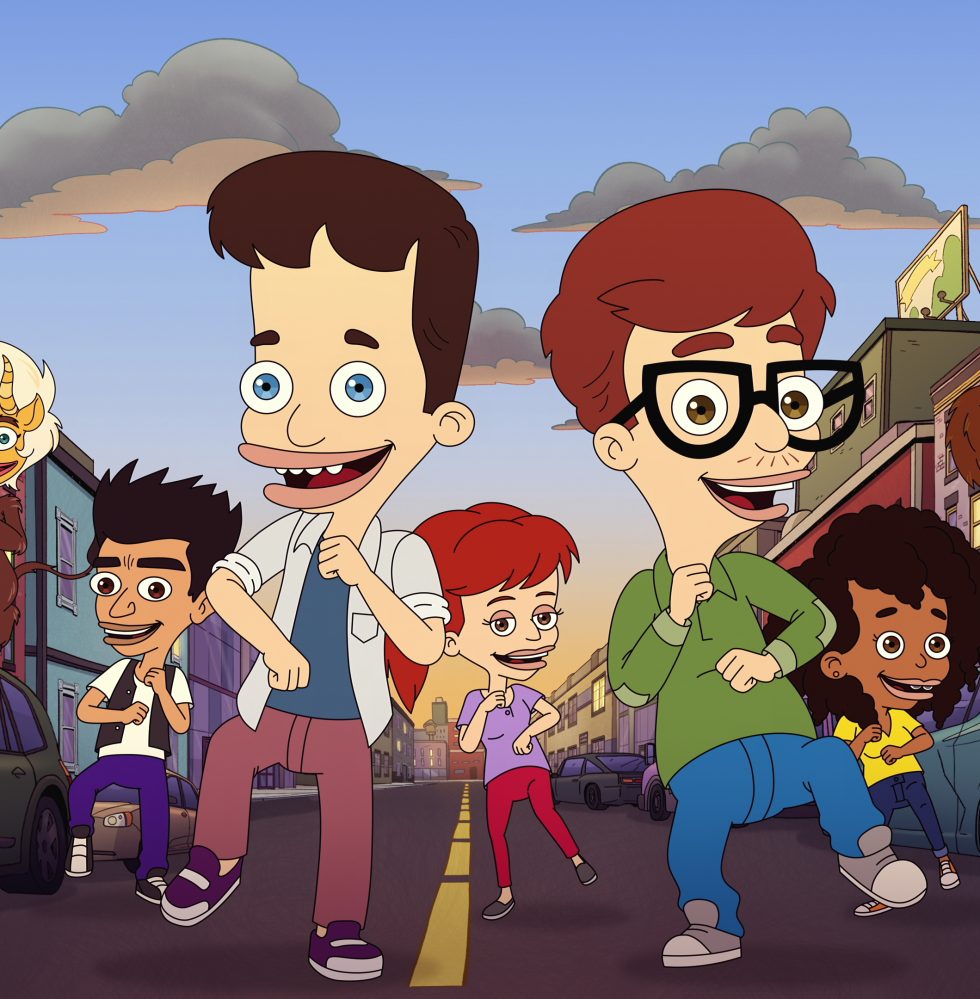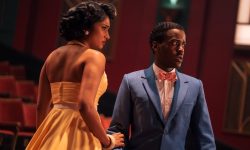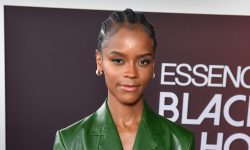
After eight seasons, Netflix’s adult animated series about the wild journey of puberty has come to a close. While the story of Big Mouth began based on the lives of creators Nick Kroll and Andrew Goldberg, the story quickly expanded with the teenage experiences of the writers, and even some teens currently going through the process.
Big Mouth follows a group of teenage friends as they find their lives upended by the wonders and horrors of puberty. Kroll says one of the most important things was to make sure that every story was handled in a mindful and earnest way, while still approaching the situation in a comedic sense.

‘Big Mouth’ Season 8
Courtesy of Netflix
DEADLINE: It’s been eight seasons of Big Mouth, what originally made you want to tell this story?
NICK KROLL: Honestly, it just started when Mark [Levin], Jen [Flackett] and Andrew [Goldberg] came to me with this idea about an animated show about me and Andrew’s experience going through puberty. And, frankly, it just immediately felt like it had the elements that would make for an animated show. Sometimes it’s hard to justify why something has to be animated, and it just felt so clear right away. There was such a natural way to explore puberty, sexuality, human development inside of the genre of adult animation, and also a way for me to sort of tell an autobiographical story without it being overtly like my autobiography on some level.
DEADLINE: Yeah, I also can’t imagine this series being told in live-action.
KROLL: Yeah… Would’ve been tricky.
DEADLINE: You’ve done, I think, over 80 voices in the series — what made you want to voice so many characters?
KROLL: I mean, that’s part of the joy of animation. I’d done Kroll Show before this and I have a sketch and character background, so it was a natural fit and part of the “sell” of the show to Netflix was always like I was at the very least going to do Lola, coach Steve, Nick and Maury the Hormone Monster. Very quickly into Season 1, we created Rick the Hormone Monster, then we started bringing in the Jansen twins, and then all these other voices started coming in big and small from Joe Walsh to Sylvester Stallone… And then it was like, ‘All right, can someone do a doll-poodle?’ And I was like, “Yeah, I think I can do a dolphin poodle hybrid.” And then it just of kept going from there. I love writing and producing this show, but I guess I have as, I never saw the movies, but I know that Liam Neeson said once that he had a particular set of skills. Notice I don’t do a Liam Neeson impression. I’ll leave that to many others, but I’m more focused on the Joe Walsh impressions than the Liam Neeson impressions. Anyway, one of the things that I was going to bring to the table was that I could do sort of a plethora of voices to help supplement our incredible cast.

Coach Steve in ‘Big Mouth’ Season 8
Courtesy of Netflix
DEADLINE: What was that like in the writers room, especially for this last season, knowing that it was coming to an end? Was it just everyone contributing their high school and puberty stories?
KROLL: Yeah, I would say our writers… when they came in to be a part of the show, from the interview process on, it was understood that they would be sharing their stories of puberty and adolescence, middle school, high school. Because at some point, it starts with me and Andrew, but then it grows to all of us. All of our writers took such beautiful ownership over the characters in the show and really loved these characters and protected them and advocated for them throughout, and really the show in general. Many of our writers that were on Season 8 were on Season 1. We don’t take that for granted. Many of our writers voiced characters on the show, big and small, and I’m incredibly proud of the show and what we made, but I’m also very proud of how we made it and who we made it with. You look back over eight seasons and a number of us in the writer’s room got married or had kids. There’re probably six or seven children born during the run of the show, and we really spent a significant amount of our lives together conceiving and building the show. So, it was very bittersweet, but ultimately, I can’t speak for all of our writers, but it was an incredibly creatively and emotionally gratifying experience.
DEADLINE: Was there anything that you wanted audiences to get from the series when you first started or as you were going on?
KROLL: When we started the show, we were really making a show that would make us laugh. It was not like, ‘Oh, we’re going to make a show that kids are going to watch.’ We were not entirely aware that kids were going to watch the show. We were just trying to make a show that would make our friends and peers and contemporaries laugh. Once the show came out, we were like, ‘Oh, wow. Kids are watching.’ Young teens, middle school kids, and teens. And the central thing that we really wanted from the beginning, and throughout, was to make people feel not so alone, because puberty can feel really isolating and can really feel like you’re the only one going through this. You can’t share what’s happening to you, no matter how weird or gross it feels. So, we were trying to destigmatize that this happens to all of us. These feelings that we have, big and small, are normal. It’s all weird and it’s all normal, and that was a really central thing that we wanted to communicate.
And then throughout the show, there are a lot of things that we learned from talking to sex educators, authors, psychiatrists, therapists, and also kids. We would interview a group of kids every year, changing classes but at the same school, and just always try to hear feedback from them about what stories they want to hear told. Even at the point, we have an episode near the penultimate episode where we opened it up to Instagram to be like, ‘What are the things that we haven’t covered that you want to hear?’ And we made a whole kind of sketch episode around that of people wanting to know about dry humping, about vaginosis, vaginismus, about queefs… about all these things that are sort of taboo. But people were like, ‘Please cover this.’ We took what we were saying and how we were saying it very seriously and earnestly, even though ultimately, nothing would ever be okay unless it was super funny. We always knew that we had to be mindful of what we were saying and how we were saying it.
DEADLINE: One thing that I always really connected with was that feeling that everything that goes wrong when you’re at that age feels like the end of the world.
KROLL: That was sort of the fun doing a show about puberty. The stakes feel so high. At that age, you have no perspective that things will ever get better or anything. You just feel like this is going to be a nightmare forever, so it is great for storytelling because the stakes feel so unbelievably high.



